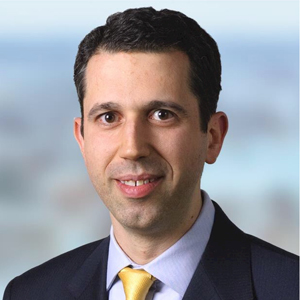Uncertainty reignites active versus passive argument
After more than 30 years of arguments among and between fund managers, academics and, even, regulators, the passive versus active debate may wax and wane but it remains unresolved across the broad investor audience. In a timely paper, Wellington Management has listed seven concerns about “the push for passive”.
The consensus about current market conditions seems to be that most sharemarkets are beyond fair value, given that the consensus among economists is that the world is headed for its worst recession since the 1930s. For most big fiduciary investors, such as APRA-regulated super funds, a certain level of passive investing is taken as a given, like a certain level of bonds despite very low yields. But their coveted outperformance in a competitive world comes from alpha generation. In times of such uncertainty, one would think that active investing should come to the fore. That is why the Wellington paper ‘An Index Isn’t a Fiduciary – and Six Other Concerns About the Push for Passive’, is timely.
Wellington is a big global active manager. It manages more than US$1 trillion in assets, has more than 800 staff and 2,200 clients. While it is best known for its equities capabilities, it also runs money in fixed income, the growing multi-asset sector, and alternatives. It opened its Australasian office, in Sydney, in 1997. The head office is on Boston. In a nutshell, the seven concerns are:
- An index isn’t a fiduciary – it’s asset of rules with no responsibility to investors
- The ‘zero-sum’ argument is overblown – because investors are inconsistent, in practice, it is not true that for someone to be a winner another person has to be a loser, and different markets behave differently
- Cap-weighted indices may not be aligned with investors’ most important goals
- Passive performance has created a false sense of security
- There is a ‘reasonable’ (some would say ‘good’) case for market inefficiency
- An above-average manager isn’t so hard to find, and
- The backdrop for active managers and the investors they serve may be improving.
The paper was written by Adam Berger, Boston-based strategist in Wellington’s multi-asset team. He says: “For many, the idea of an ‘active versus passive’ debate misses the mark, as both approaches may have a role to play. The question is how investors allocate between the two. Where cap-weighted indices are, by their very structure, poorly aligned with investor goals, the decision to go active is a relatively easy one. Investors should follow the fiduciary model and seek a manager who can create a portfolio that is better aligned with their objectives, assuming this can be done at a reasonable cost.
“Where cap-weighted indices are better aligned with investor goals, the objective of active management is more about beating a benchmark, and investors must assess the inefficiency of the market and their own ability to identify an above-average manager. Going active undoubtedly means taking on an additional measure of risk and trading a known fee for an unknown outcome, but as noted, I am optimistic about the opportunities available to institutional investors today.
“I would offer two final notes of caution, in both cases harking back to the perils of putting too much focus on recent events. First, investors should not assume the broad equity indices will be aligned with their goals – in particular, that they will deliver sufficient returns in the next 5-10 years. Second, investors should consider whether some of the recent outperformance of passive strategies is cyclical/self-reinforcing and will diminish over time. In today’s world, I think there is a compelling case for more active management, not less. This is all the more true for contrarian investors, who will likely want to move in the opposite direction of the massive sums that have moved to passive.”
– G.B.











